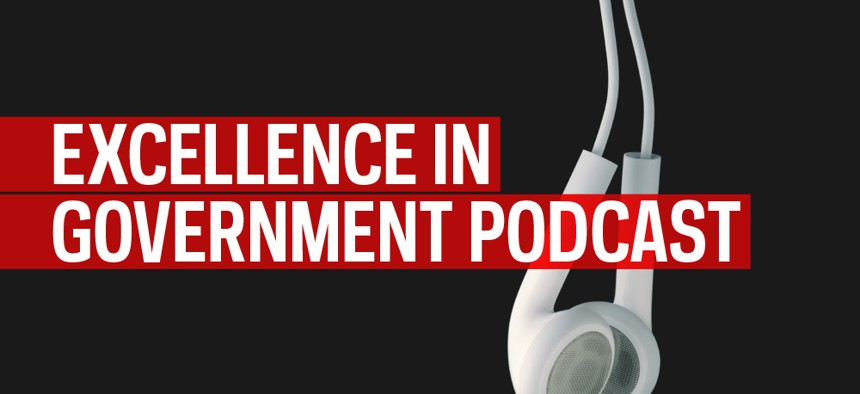Rethinking the Modern Federal Manager
GovExec's Kellie Lunney says 'change agility' is a key leadership trait in uncertain times.
Listen to the story:
Download this episode | Subscribe on iTunes
Working in government has proved arduous for federal employees in the early part of this decade. The recent government shutdown, sequestration and budget battles in Congress create uncertainty and frustration, especially for those in management positions trying to motivate employees and address their concerns.
But a new style of manager is emerging in government. This modern federal manager, as senior correspondent Kellie Lunney writes in the January/February issue of Government Executive, is adaptable, open and able to gets results despite myriad constraints. Lunney highlights examples at the FBI and the Treasury Department.
Lunney spoke with host Ross Gianfortune about her Government Executive cover story on the evolution of federal management. She interviewed various government observers, including Kris van Riper, a best practices professional, who says “change agility" is a critical trait for federal managers in 2014. They need to be adaptable to smaller budgets, complicated systems and a dwindling workforce.
"The ability to pivot from one challenge to another in a way that is more flexible and more creative is really a valued quality," Lunney says, noting that managers need to buck the stereotype of a paper-pushing bureaucrat. She cites a list of skills needed to succeed in a changing environment and suggests that communication is the most important of all.
"It's the ability to communicate with your superiors, but also the people that you manage," Lunney explains. "People really respond to managers who are straight with them, even if they don't know something or don't have the information."
Training also is key to having more effective managers in government. Many are promoted past their competencies or are simply focused on advancing to the next GS level, Lunney says. "People need to understand when they become managers what the expectations are," she says. "They need to be educated to do their job well."








